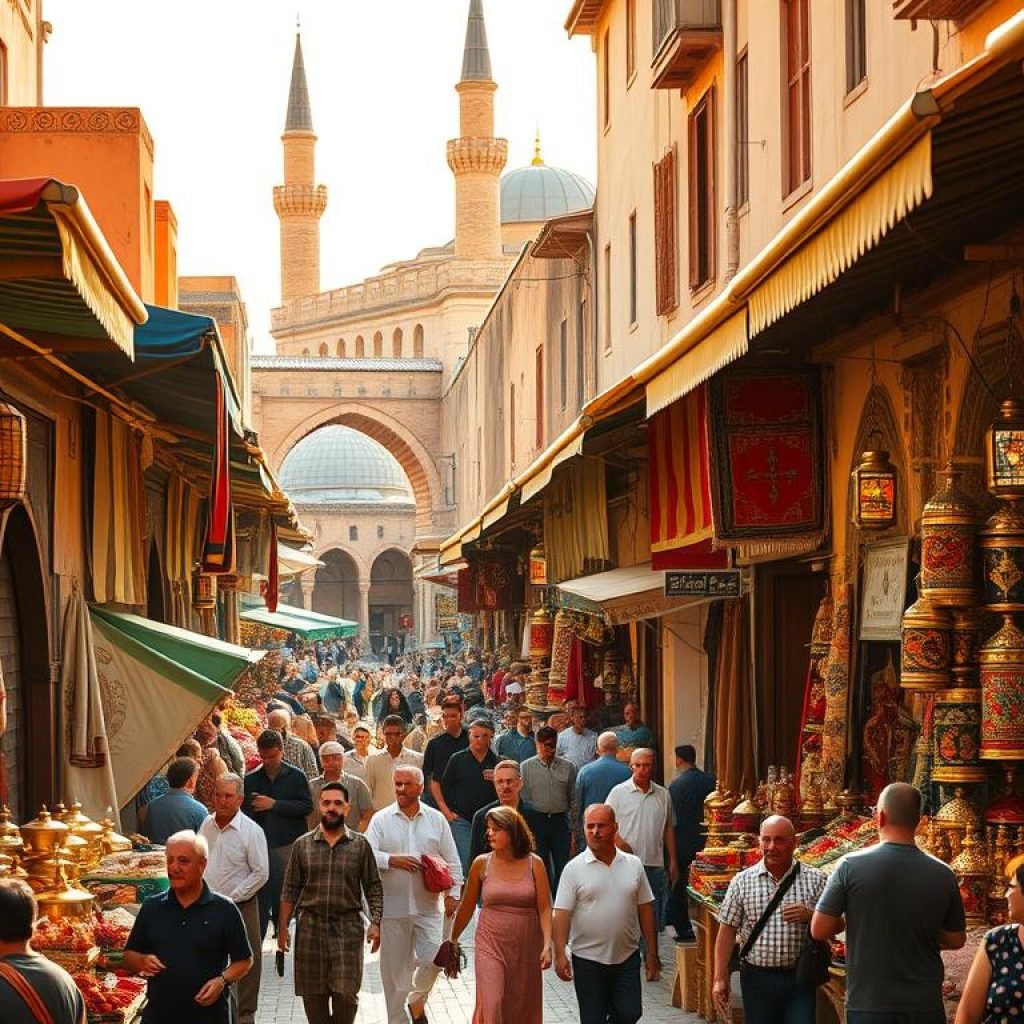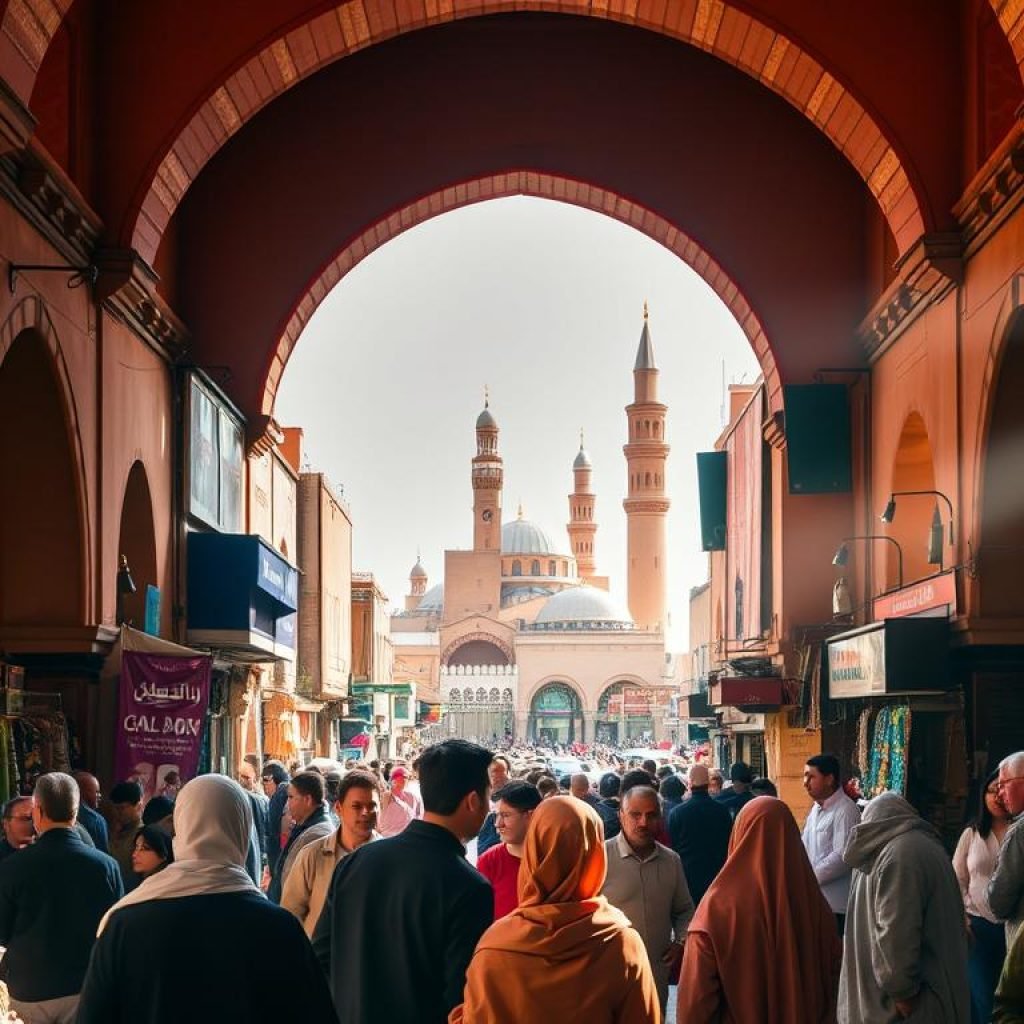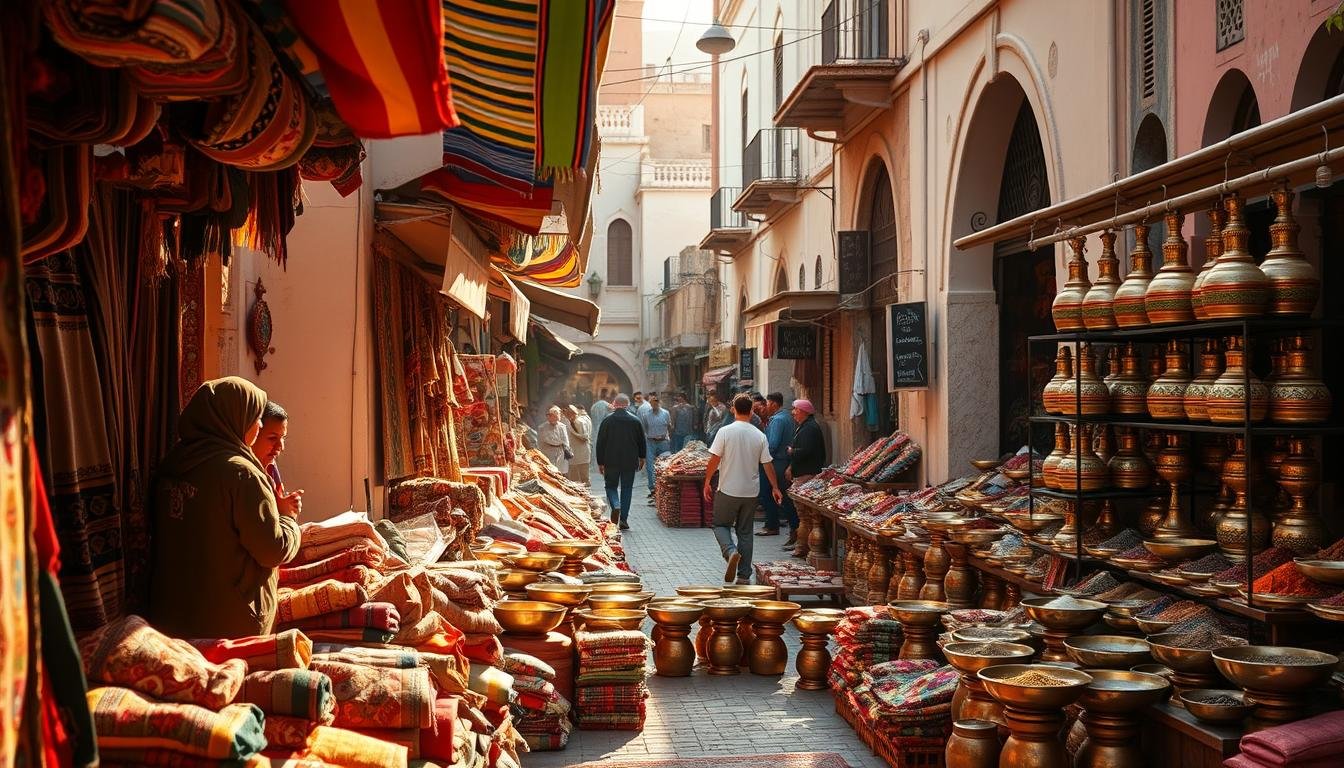Stepping into the vibrant streets of Morocco is like entering a world of color, culture, and charm. From the bustling souks of Marrakech to the winding alleys of Tangier, every corner tells a story. Yet, as a tourist, you might notice something else—locals offering unsolicited help or services. These individuals, often referred to as touts, are a common sight in many Moroccan cities.
Touts can range from friendly shopkeepers inviting you into their stores to young individuals offering to guide you through the maze-like medinas. While their intentions may vary, one thing is clear: knowing how to navigate these interactions is key to enjoying your time in this beautiful country.
Understanding the cultural context is essential. In Morocco, hospitality is deeply rooted in tradition, and many locals genuinely want to assist you. However, it’s also important to recognize when someone is seeking money or a tip. By staying informed and prepared, you can handle these situations with confidence and respect.
In the following sections, we’ll explore practical strategies, cultural insights, and safety tips to help you make the most of your Moroccan adventure. Whether you’re exploring the markets or dining at a local restaurant, these tips will ensure a smooth and enjoyable experience.
Key Takeaways
- Touts are common in Moroccan cities, especially in tourist-heavy areas like Marrakech and Tangier.
- Interactions can range from friendly invitations to persistent requests for money.
- Understanding cultural norms is key to handling these situations respectfully.
- Being firm and polite is often the best way to manage unwanted attention.
- Local authorities are available to assist if you feel uncomfortable or harassed.
Understanding the Moroccan Tout Culture
The lively atmosphere of Moroccan cities is both captivating and challenging for first-time travelers. Among the vibrant markets and winding alleys, you’ll encounter individuals offering their services or assistance. These interactions, while sometimes overwhelming, are deeply rooted in the country’s culture and traditions.
Identifying the Types of Touts on the Streets
Not all touts are the same. Some are friendly shopkeepers inviting you into their stores, while others may be persistent guides offering to show you around. Here’s a breakdown of the most common types:
- Shopkeepers: Often found in souks, they’ll call out to attract your attention.
- Independent Guides: These individuals may offer to lead you through the medinas for a fee.
- Young Kids: They might sell small items or ask for money directly.
“Understanding the cultural context is key to navigating these interactions respectfully.”
Cultural Context Behind Touting in Morocco
In Morocco, hospitality is a cornerstone of the culture. Many locals genuinely want to help, but economic challenges also drive some to seek income through these interactions. For example, young kids may approach tourists to earn a small tip, while others might use more aggressive tactics.
| Type of Tout | Behavior | Common Locations |
|---|---|---|
| Shopkeepers | Friendly invitations | Souks, markets |
| Independent Guides | Persistent offers | Medinas, tourist areas |
| Young Kids | Direct requests | Street corners, markets |
Navigating these encounters requires a balance of firmness and politeness. For more Morocco travel tips, check out our detailed guide to ensure a smooth and respectful experience.
Practical Strategies to Deal with Touts in Morocco
Exploring the bustling streets of Marrakech or Tangier can be an unforgettable experience, but it often comes with unexpected interactions. Whether you’re in a busy souk or a quiet city alley, knowing how to respond confidently is key to a smooth journey.

Assertiveness and Confident Body Language
One of the most effective ways to manage these situations is through assertiveness. Maintain eye contact and stand tall to convey confidence. A firm but polite “No, thank you” in French or Arabic can go a long way.
For example, if a shopkeeper insists you enter their store, a simple “Non, merci” or “La, shukran” can help you move on without confrontation. Remember, your body language speaks volumes—avoid hesitation or uncertainty.
When to Engage and When to Walk Away
Not every interaction requires a response. If a person offers unsolicited help, like guiding you to a riad, evaluate their intent. Genuine assistance can be valuable, but persistent requests for money are best ignored.
In cases where you feel uncomfortable, walking away is the best option. For instance, if a kid tries to sell you something aggressively, a polite but firm “No” followed by a quick exit is often the safest choice.
| Situation | Response | Outcome |
|---|---|---|
| Persistent shopkeeper | “No, thank you” in French or Arabic | Move on without confrontation |
| Unsolicited guide | Evaluate intent, walk away if necessary | Avoid unwanted interaction |
| Aggressive seller | Firm “No” and quick exit | Ensure personal safety |
Being prepared with a few key phrases and understanding when to disengage can make your time in Morocco more enjoyable. If a situation escalates, don’t hesitate to involve local authorities for assistance.
Navigating Popular Tourist Areas and Hidden Gems
Morocco’s vibrant cities are a blend of history, culture, and adventure, but navigating them requires a strategic approach. From the bustling medinas of Marrakech to the coastal charm of Tangier, each city offers unique experiences. Understanding how to explore these areas safely and respectfully ensures a memorable journey.
Tactics for Marrakech, Tangier, and Other Key Cities
In Marrakech, the medina is a maze of narrow alleys and vibrant markets. To avoid feeling overwhelmed, start your day early. This allows you to explore before the crowds arrive. In Tangier, the Kasbah offers stunning views of the Mediterranean, but be cautious of persistent guides. A polite “No, thank you” in Arabic or French often works.
Here are some actionable tactics for major cities:
- Plan your route in advance to avoid getting lost in winding streets.
- Carry small change for tips, but avoid flashing large amounts of money.
- Use trusted local guides or apps for navigation in unfamiliar areas.
Exploring Souks and Local Markets Safely
Souks are the heart of Moroccan culture, offering everything from spices to handmade crafts. To enjoy these markets without hassle, visit early in the day. This is when locals shop, and touts are less active. Look for vendors who engage with locals rather than aggressively targeting tourists.
“The early bird catches the worm—and the best deals in the souk.”
Here’s a quick guide to navigating souks:
| Market | Best Time to Visit | Tips |
|---|---|---|
| Marrakech Souk | Early Morning | Focus on small stalls for authentic finds. |
| Tangier Market | Late Afternoon | Bargain respectfully and avoid overpaying. |
| Fez Medina | Midday | Stick to main streets to avoid getting lost. |
For a deeper understanding of sustainable tourism practices in Morocco, check out this guide on planning a responsible trip.
Staying Safe and Respectful in Moroccan Public Spaces
Navigating the streets of Morocco requires a blend of awareness and respect for local customs. Dressing modestly and understanding cultural norms can significantly reduce unwanted attention. This ensures a smoother and more enjoyable experience.

Dress Codes and Local Norms
Modest dressing is highly valued in Morocco. For women, covering shoulders and knees is recommended. Men should avoid sleeveless shirts in public spaces. This not only shows respect but also helps you blend in with locals.
Carrying a light scarf or sweater is a practical tip. It allows you to adjust your attire when entering religious sites or conservative areas. This small effort can make a big difference in how you’re perceived.
Protective Behaviors and Safe Zones
Staying near busy public squares or riads is a smart strategy. These areas often have police patrols, providing an added layer of security. Avoid isolated streets, especially after dark.
If you feel uncomfortable, seek help from local authorities or your riad staff. They are trained to assist tourists and can guide you to safety. Always trust your instincts and avoid confrontations.
| Safe Zone | Why It’s Safe |
|---|---|
| Public Squares | High visibility and police presence |
| Near Riads | Staff assistance and security |
| Busy Markets | Crowded areas deter harassment |
Blending in with local behavior can also help. Avoid loud conversations or public displays of affection. These actions can attract unwanted attention and disrupt your experience.
“Respecting local customs is the key to a harmonious journey in Morocco.”
By following these guidelines, you can explore Morocco with confidence and respect. Whether in Marrakech or Tangier, these tips will help you stay safe and enjoy your adventure.
Cultural Insights and Positive Tourist Interactions
Morocco’s rich cultural tapestry offers more than just stunning landscapes—it’s a place where every interaction can become a meaningful exchange. While some encounters may feel overwhelming, they often provide a window into the country’s traditions and daily life. By approaching these moments with curiosity and respect, you can turn potential hassles into enriching experiences.
Turning Hassles into Genuine Cultural Encounters
Even challenging interactions can lead to deeper cultural understanding. For example, a woman traveling solo in Tangier shared how a persistent guide eventually introduced her to a hidden tea house. This unexpected detour became a highlight of her trip, offering insights into Moroccan hospitality.
Simple gestures, like a smile or a polite greeting, can also shift the tone of an encounter. Many travelers have found that showing respect for local customs reduces aggressive behavior. For instance, learning a few phrases in Arabic or French can open doors to genuine connections.
Leveraging Local Advice and Proper Etiquette
Local advice is invaluable for navigating Morocco’s cultural nuances. Engaging with shopkeepers or riad owners often leads to recommendations for authentic experiences. One traveler received a tip about a lesser-known market in Marrakech, where she discovered unique crafts and avoided the usual tourist crowds.
Respecting etiquette, such as dressing modestly and avoiding public displays of affection, also fosters positive interactions. These small adjustments show appreciation for local norms and can lead to more respectful exchanges.
| Strategy | Outcome |
|---|---|
| Learn basic phrases | Builds rapport and reduces misunderstandings |
| Engage with locals | Gain authentic insights and hidden gems |
| Respect dress codes | Minimizes unwanted attention |
“Every interaction in Morocco is an opportunity to learn something new—embrace it with an open mind.”
By balancing caution with curiosity, you can transform everyday encounters into memorable cultural experiences. Whether it’s sharing mint tea with a local or discovering a quiet corner of the medina, these moments enrich your journey and deepen your connection to Morocco.
Conclusion
Exploring Morocco’s vibrant streets offers a mix of cultural richness and unique challenges. Understanding the local context is essential to navigating interactions respectfully. By staying informed and prepared, you can confidently manage situations while enjoying this beautiful destination.
Practical strategies, like assertive body language and knowing when to walk away, ensure smoother experiences. Respectful engagement, such as saying “thank you” or politely declining, fosters positive exchanges. These small actions can turn potential hassles into meaningful cultural encounters.
Preparation and respect for local norms enhance any trip. Whether shopping in a souk or dining at a restaurant, these tips help you make the most of your journey. For more insights, avoid common mistakes in Morocco and ensure a memorable adventure.
We’d love to hear your experiences! Share your stories and tips in the comments to help fellow travelers make the most of their chance to explore this incredible country.




Comment (0)